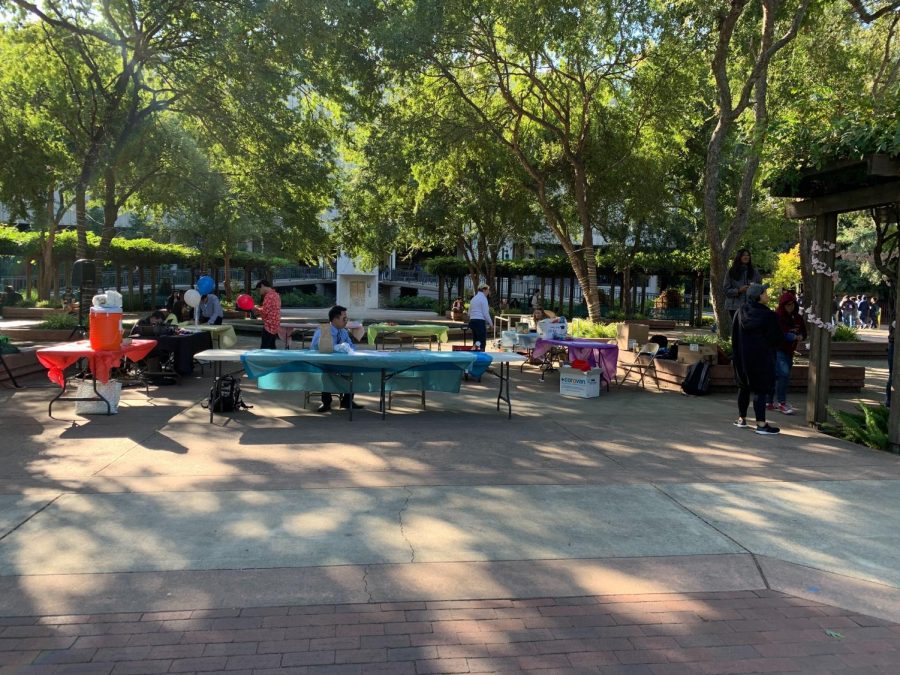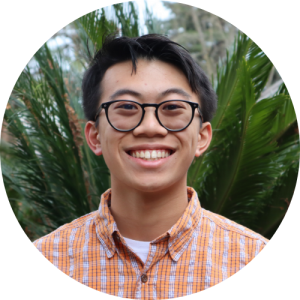Sac State students pledge to end stigma during Mental Health Awareness Week
Students at the Mental Health Unity Pledge at the Library Quad Thursday. Active Minds and Student Health and Counseling Services at the WELL held the event with the goal of fostering support and ending stigma around mental health
October 11, 2019
Monday began Mental Health Awareness Week, a week dedicated to fighting stigma and providing support according to the National Alliance for Mental Illness.
Student Health and Counseling Services, SHCS, at Sacramento State held the Mental Health Unity Pledge on Thursday. According to Lara Falkenstein, a health educator, it was part of Active Minds at Sac State’s Mental Health Unity campaign, meant to “promote solidarity and support for people with a mental health concern.”
Falkenstein said that over 200 individuals signed the pledge on Thursday.
The pledge sought to provide a “safe space” for mental health discussion, listen without judgment, be aware of resources, treat all people as capable and valuable and speak out against stigma toward mental illness, Falkenstein said.
Elizabeth Lopez, a psychology major, attended the pledge and said that she has struggled with anxiety for most of her life.
“Some days life just feels so overwhelming to the point where I want to do nothing,” she said. “But I’ve learned over the years to remind myself that I am strong and that I’m hardworking.”
Falkenstein recommended that students dealing with mental health issues confide in someone they trust or visit SHCS at the WELL.
Director of Counseling Ron Lutz said that SHCS has 15 full-time counselors who see five-to-six patients a day. Lutz said that they have seen 840 patients this semester, according to a report from two weeks ago.
Urgent care counselors are also available during business hours for drop-in appointments.
Lutz said the demand for urgent care counselors is increasing quicker than demands for other counseling services. SHCS hired a second urgent care counselor this semester to help with this increased demand.
“Our whole purpose for being here is to help students be able to stay functional, to be able to graduate, to be able to be successful in their academics,” Lutz said. “The question becomes, ‘how much is what they’re dealing with in the way of that?’”
New patients and patients returning after over a year have an initial consultation appointment before attending more sessions if needed.
At the initial consultation, counselors determine whether patients are best treated with brief, short-term therapy from SHCS or with treatment from more specialized groups and resources.
Counseling Services specializes in short-term treatment for acute concerns, such as depression, anxiety and relationship issues. Students with chronic concerns, such as bipolar disorder, ADHD or eating disorders, seeking or needing more long-term treatment can be referred to therapists off-campus.
Josie McManaman, patient care coordinator, handles referrals to services outside of SHCS. Her job is to know where patients can go, provide guidance on insurance and check if referred students received assistance.
Most California State University counseling centers do not have a patient care coordinator, Lutz said. At these campuses, the counselors have to be the ones to guide patients through the referral process, which means less time spent with patients.
Patients can refuse the recommendations from counselors, and are encouraged to tell their counselors what treatment they want.
“Good treatment should always be collaborative,” Lutz said. He added counselors ask students how much time they have for treatment, what resources they have and what else is happening in their lives.
“We don’t want to force a treatment on a client,” he said.
Student Health & Counseling Services at the WELL is open from 8 a.m. to 6 p.m. Monday to Thursday and 9:30 a.m. to 4:30 p.m. on Friday.
Students can schedule appointments online or by phone call, but appointments online can only be scheduled within the next 16 hours. To get an appointment outside of that time frame, students can call Counseling Services at (916) 278-6461 during the hours above to find times that fit within their schedules
If you or a loved one are experiencing suicidal thoughts contact the National Suicide Prevention Lifeline at 1 (800) 273-TALK or 1 (800) 273-8255.




































































































































